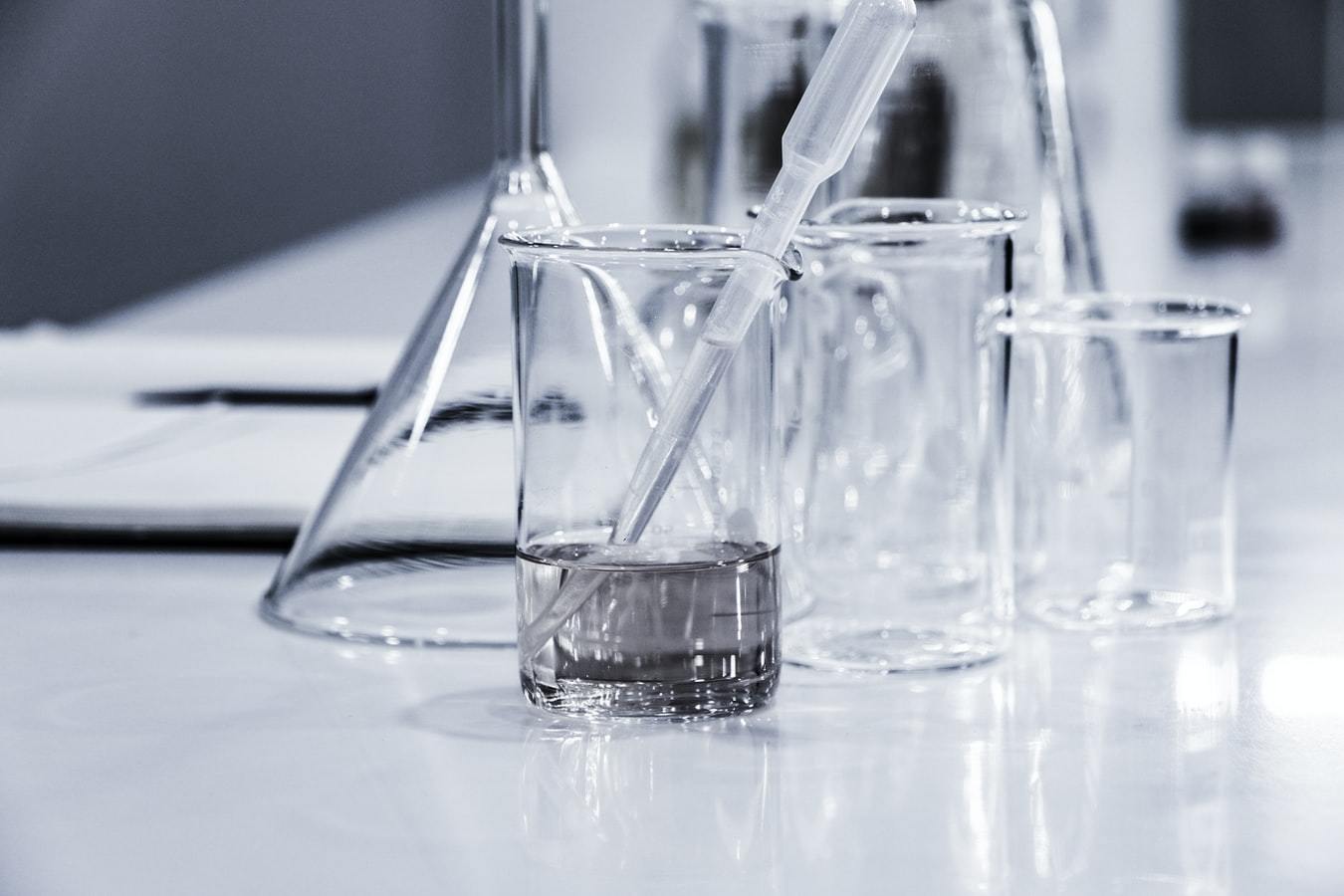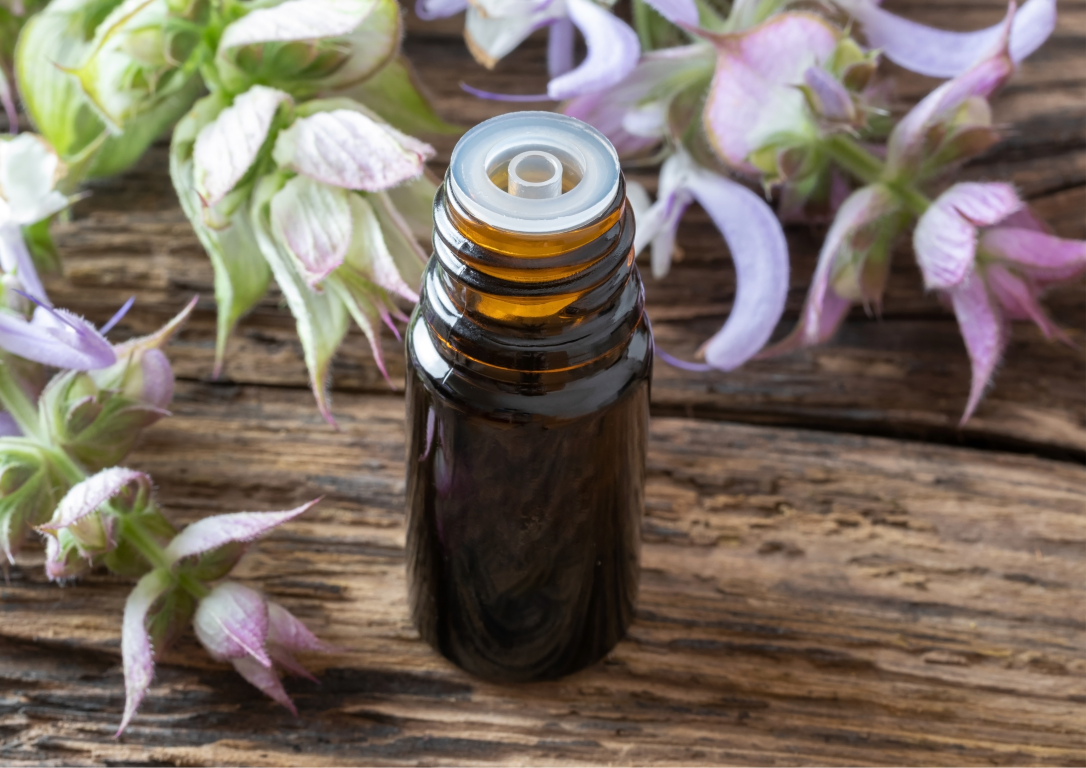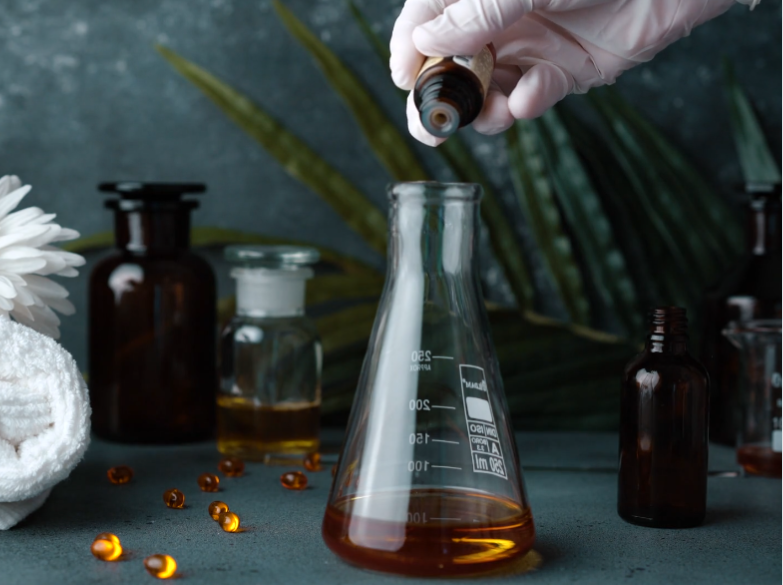As we’ve seen, essential oils have been used by humans for over a thousand years. Nevertheless, we have only seen some of their potential so far. Knowledge of essential oils has previously been based solely on what people say. But lately, there has been an explosion of scientific research on essential oils. This has led to a number of publications and a lot of documentation. In the last ten years, more studies on essential oils have been published than in the previous 500 years combined.
What Exactly is Aromatherapy?

Aromatherapy is the use of essential oils from plants (flowers, leaves, bark, resin etc.) as a complementary health treatment. The essential oils are often dispersed into the air by means of a diffuser. They can then be inhaled. Alternatively, they are applied in a diluted form to the skin from where they are absorbed and inhaled. Many essential oils are used in aromatherapy for their different properties. We’ve already seen some of the more popular ones. Other lesser-known ones include plai, neroli and cardamom.
Aromatherapy is used as an aid against stress, depression, burnout, and insomnia. It is sometimes included in massage therapy, for example in the treatment of painful joints and muscle tension, and to relieve the symptoms in people with cancer.
A study that researched the use of the essential oils of lemon and lavender for people under stress documented that lemon had a positive effect on mood. The NCCIH conducted the study, and they point out that aromatherapy is not intended to replace medical expertise and advice from healthcare professionals but can be used to complement it.
What is the Science Behind Essential Oils?

When inhaled, "the absorption of essential oils in the nose is as fast as an intravenous injection," says Gerhard Buchbauer, professor of pharmaceutical chemistry at the University of Vienna in Austria. He has researched and written about the chemical compounds used in aromatherapy. “The oils contain both simple and complex chemicals,” he continued.
Each bottle of essential oil contains a unique chemical blend. These compounds evaporate quickly. Their chemical structures are mainly made up of carbon atoms. The chemical particles in the essential oil can provide therapeutic effects through their interaction with our body.
Why Learn About Research on Essential Oils?
When we understand a little bit more about how they work, it can give us confidence when we use them. We can also learn about all the different ways they can be used in our everyday lives.

How Is Volant Involved in Essential Oil Research?
We at Volant are passionate about helping people through the use of essential oils. Our vision is to become a world leader in the development of essential oils of the highest quality for use in natural wellness and therapy. We achieve this with a professional team of in-house researchers and with the help of skilled medical advisors. The team at Volant and our research partners are constantly trying to learn more about the therapeutic potential of essential oils by designing and conducting studies and tests.
Studies on Essential Oils
When essential oils are inhaled, they stimulate the smell receptors in the nose. These chemical messages are sent through nerves to the brain. This in turn affects our mood and emotions and can have some physical effects on the body, according to the National Institutes of Health (NIH).
Medical aromatherapy is popular in Europe, and many doctors prescribe and use essential oils therapeutically to complement their medical treatment. According to Dr Wolfgang Steflitsch, vice president of the Austrian Association of Aromatherapy and Aroma Care around 100 different essential oils are used for medical aromatherapy in European countries.
Thousands of studies have been done on essential oils and their effects and this has led to many positive effects of using essential oils being confirmed and documented.
Studies on Lavender Essential Oil

Lavender is one of the most popular essential oils in the world. Its widespread use is due to its wide range of uses and associated effects. Lavender essential oil is claimed to be antibacterial, antifungal, anti-anxiety, antidepressant, analgesic, and helps with wound healing. Recent research has backed up the anti-anxiety claims. For instance, one study indicated that lavender effectively helped anxiety to the same extent as 0.5mg per day of the drug lorazepam. It was also shown in 36 patients in intensive care units to reduce anxiety and improve mood when administered as aromatherapy.
Studies on Grapefruit Essential Oil

Thanks to the strong perfume and beautiful pink colour, it is not difficult to understand why grapefruit oil is a favourite for aromatherapy use. The benefits of the oil are said to range from skin-cleansing to helping you with health goals - not to mention the wonderful, cheerful, fresh scent!
Our team at Volant cold presses the fresh fruit to distil the essential oil and bottle the inviting smell so you can put it in your diffuser.
Many studies have been done on grapefruit oil in recent years. One study showed that it inhibits the growth of certain disease causing foodborne bacteria. Grapefruit essential oil also destroys fungi and there’s hope that it will be further developed for the treatment of certain diseases. Grapefruit essential oil has been shown to have antioxidant activity, which is important for disease prevention. Grapefruit extract has been shown to reduce the viability leukaemia cells. In fact, grapefruit extracts can slow down the growth and spread of cancer cells such as neuroblastomas, leukaemia, and prostate and lung cancer lines.
A study conducted by a group of researchers from Madrid, Pamplona and Vienna tested whether helichrysum and grapefruit extracts can be used in weight loss treatments along with a reduced calorie diet. Both extracts helped reduce weight gain and helped balance blood sugar when combined with a suitable diet.
Studies on Eucalyptus Essential Oil

The eucalyptus family consists of about 900 species, of which more than 300 contain volatile essential oil in the leaves. About 20 species within these are suitable for the production of essential oils in the pharmaceutical and cosmetic industries. Eucalyptus' aromatic leaves contain properties that make the essential oil from the leaves antimicrobial, antiseptic, antioxidant, chemotherapeutic, suitable for respiratory and gastrointestinal disorders and wound healing. They are also useful in insect repellent, perfumes and soaps and are effective for fat removal.
Many studies have been conducted on essential oil from eucalyptus and its antibacterial properties. A study conducted by the Stambouli University of Mascara showed that essential oil from the leaves of eucalyptus globulus has antimicrobial activity against gram-negative bacteria (E. coli) as well as gram-positive bacteria (S. aureus).
Studies on Bergamot Essential Oil

Bergamot essential oil is used in aromatherapy to minimize symptoms of stress, anxiety and mood disorders. A study from the University of Calabria in Italy supports this. Basically, the study showed that bergamot can be soothing and can have positive effects on stress and anxiety.] This study has shown some of the potential that may lie in bergamot essential oil and its use for clinical purposes.
A review conducted at universities and institutions in Bari, Milan and Zallaq summarizes bergamot’s positive effect on heart, bone, inflammation, skin diseases, mood swings, anxiety, pain and stress. This review included a total of 31 studies. Bergamot had positive effects on high cholesterol levels. When applied to the skin, bergamot essential oil reduced blood pressure. In animal tests, it was shown that bergamot essential oil increases bone volume, reduces psoriasis plaque, increases skin collagen content and promotes hair growth.
Studies on Lemongrass Essential Oil

Lemongrass essential oil showed an anti-inflammatory effect in animal and human cells in a study done in the USA. In this study, the anti-inflammatory activity of a commercially available lemongrass essential oil was evaluated in pre-inflamed human skin cells. It showed that lemongrass oil significantly helped to reduce inflammation. This study provided the first evidence of the anti-inflammatory activity of lemongrass essential oil in human skin cells and indicated that this oil is a good therapeutic candidate for the treatment of inflammatory skin conditions.
Studies on Geranium Essential Oil

A study at IFTM University in India researched the sun protection factor (SPF) and the antioxidant potential of geranium essential oil. It was observed that geranium oil has the potential to reduce or prevent oxidative stress and can be used in skincare products to reduce skin ageing via its antioxidant properties. The results also showed that geranium essential oil can be used in sunscreen to protect the skin from sunburn.
Another study from Japan researched menopause. Many women experience health-related symptoms during menopause due to a drop in oestrogen levels. It has long been known that some essential oils have the ability to relieve menopausal symptoms. Based on this, it is possible that some essential oils may normalize oestrogen levels in women. The Japanese study results showed an increase in oestrogen concentration in saliva caused by exposure to geranium. Together with previous studies, this research supports the idea that inhaling certain essential oils can affect the saliva concentration of oestrogen.
Studies on Tea Tree Essential Oil

Tea tree essential oil has become a popular ingredient in a variety of household and cosmetic products such as shampoos, massage oils, skin and nail creams and detergents. It is known for its antiseptic properties, and it has been shown to be active against a variety of bacteria, fungi, viruses and mites. The oil is extracted from the tea tree's leaves by steam distillation. The essential oil has a sharp camphoric odour followed by a mint-like cooling sensation.
Tea tree essential oil is effective as a treatment for acne, according to the NIH. Tea tree essential oil reduces the number of skin lesions in patients with mild to moderate acne. The tolerance for tea tree oil products is as good as with other treatments. Tea tree's antimicrobial and anti-inflammatory properties are the reason for the positive results. In a clinical study, researchers compared creams containing tea tree oil with a benzoyl peroxide product. The study showed that benzoyl peroxide worked a little better, but that tea tree oil had fewer side effects.
Studies on Spruce Essential Oil

Spruce essential oil has antiseptic properties. These make it suitable for preventing and treating respiratory problems and muscle pain. According to Dr. Kurt Schnaubelt, it has helps open the airways and empty mucous membranes. It works best from a diffuser.
Like many other resin-rich essential oils, spruce is both soothing and uplifting, making it useful for reducing stress, tension and anxiety, especially at a persistently high level of stress. It also has an invigorating effect that can raise energy levels when one feels tired and weary.





